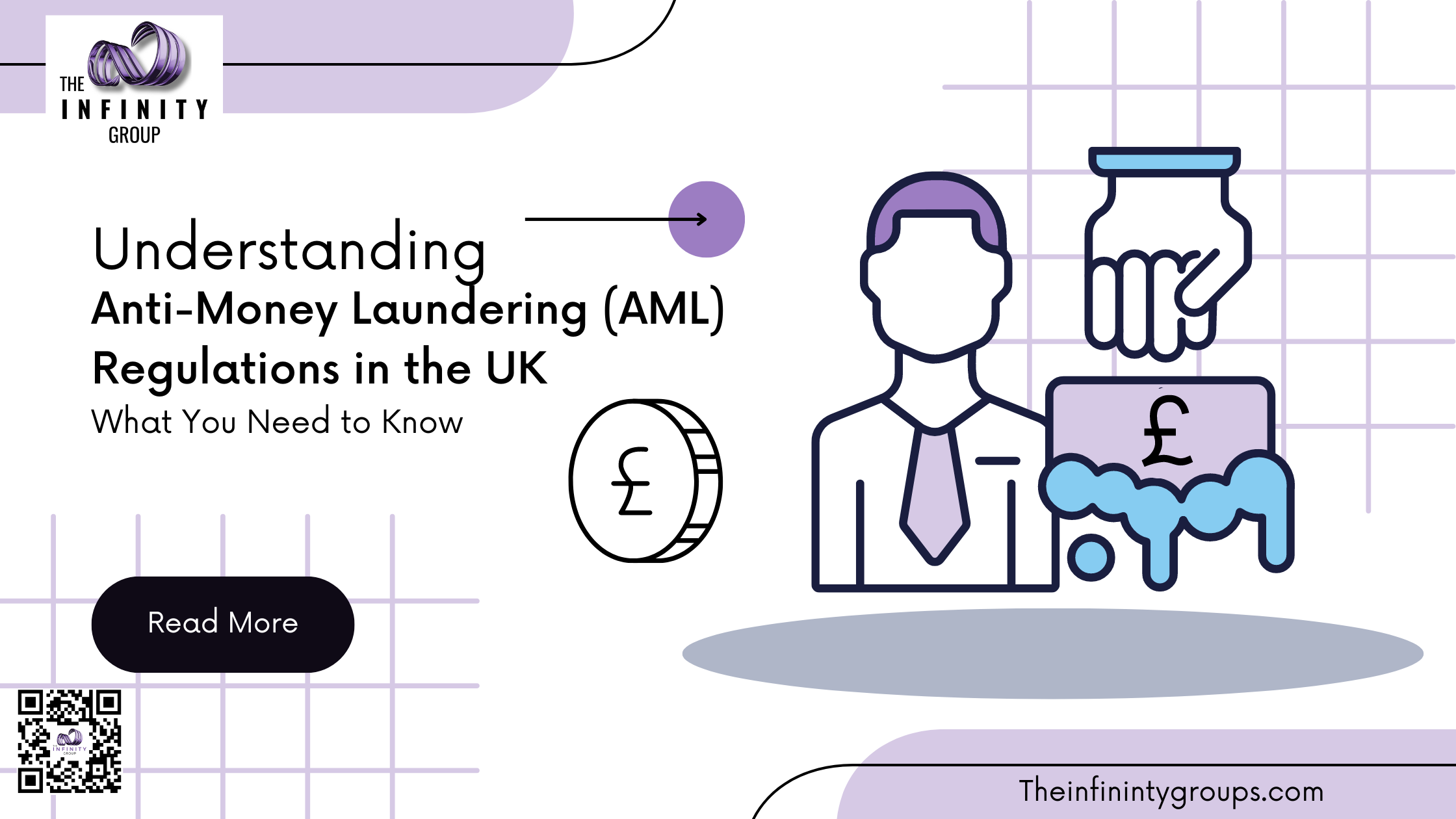Money laundering is a serious issue that undermines the integrity of financial systems worldwide, and the UK is no exception. In response, the UK government has put in place stringent anti-money laundering (AML) regulations to combat financial crime, protect businesses, and safeguard the economy. These laws are particularly relevant for companies across various industries, including construction, where compliance is critical to avoid legal risks and penalties.
In this blog post, we’ll explore the key aspects of the UK’s AML regulations, their impact on businesses, and how The Infinity Group can help you navigate and stay compliant with these laws.
What Are Anti-Money Laundering Regulations?
Anti-Money Laundering (AML) regulations are designed to prevent criminals from disguising illegally obtained money as legitimate income. These regulations require businesses, especially those in the financial and professional sectors, to implement policies and procedures that detect, prevent, and report suspicious activities.
In the UK, AML regulations are governed primarily by:
- The Money Laundering, Terrorist Financing and Transfer of Funds (Information on the Payer) Regulations 2017: This legislation outlines the obligations for businesses, including risk assessments, customer due diligence (CDD), and reporting suspicious transactions.
- The Proceeds of Crime Act 2002 (POCA): This act sets out the legal framework for the recovery of criminal assets and imposes duties on businesses to report any suspicious financial activity.
Key AML Compliance Requirements for UK Businesses
To comply with AML regulations in the UK, businesses are expected to:
- Conduct Risk Assessments: Businesses must assess their exposure to money laundering risks. This includes evaluating customers, transactions, and geographic areas that may pose higher risks.
- Customer Due Diligence (CDD): Verifying the identity of customers is a critical component of AML compliance. Businesses need to gather and validate information such as proof of identity and address, especially for high-value transactions.
- Ongoing Monitoring: Once CDD checks are complete, businesses must continue to monitor their clients’ financial transactions to detect any suspicious activity.
- Reporting Suspicious Activity: If a business suspects that money laundering or terrorist financing is taking place, it must report this to the National Crime Agency (NCA) by submitting a Suspicious Activity Report (SAR).
- Maintain Records: UK businesses are required to keep records of customer interactions, transactions, and CDD checks for at least five years.
- Appoint an AML Officer: Businesses subject to AML regulations must appoint a dedicated Money Laundering Reporting Officer (MLRO) responsible for ensuring compliance and reporting suspicious activities.
How Non-Compliance Can Affect Your Business
Failure to comply with AML regulations in the UK can lead to severe consequences, including:
- Fines: Companies that do not comply with AML regulations can face hefty financial penalties from regulatory bodies such as HMRC.
- Criminal Charges: In severe cases, directors and employees could face criminal prosecution for facilitating money laundering, even unintentionally.
- Reputation Damage: Non-compliance can severely damage your company’s reputation, leading to a loss of trust among clients and partners.
How The Infinity Group Can Help Your Business Stay Compliant
At The Infinity Group, we understand that navigating the complexities of UK AML regulations can be challenging, especially for businesses in the construction and contracting sectors. Our expertise in payroll and compliance management helps you stay ahead of regulatory changes while reducing the risk of penalties and legal complications.
- Compliance Monitoring: Our team provides ongoing monitoring services, ensuring that your business complies with AML regulations and updates as laws evolve.
Conclusion
Staying compliant with the UK’s Anti-Money Laundering regulations is essential for protecting your business and maintaining its reputation. By partnering with The Infinity Group, you can navigate these complex regulations with confidence, ensuring your business meets its legal obligations while minimising risks.
To learn more about how we can help you comply with AML regulations, contact us today!

